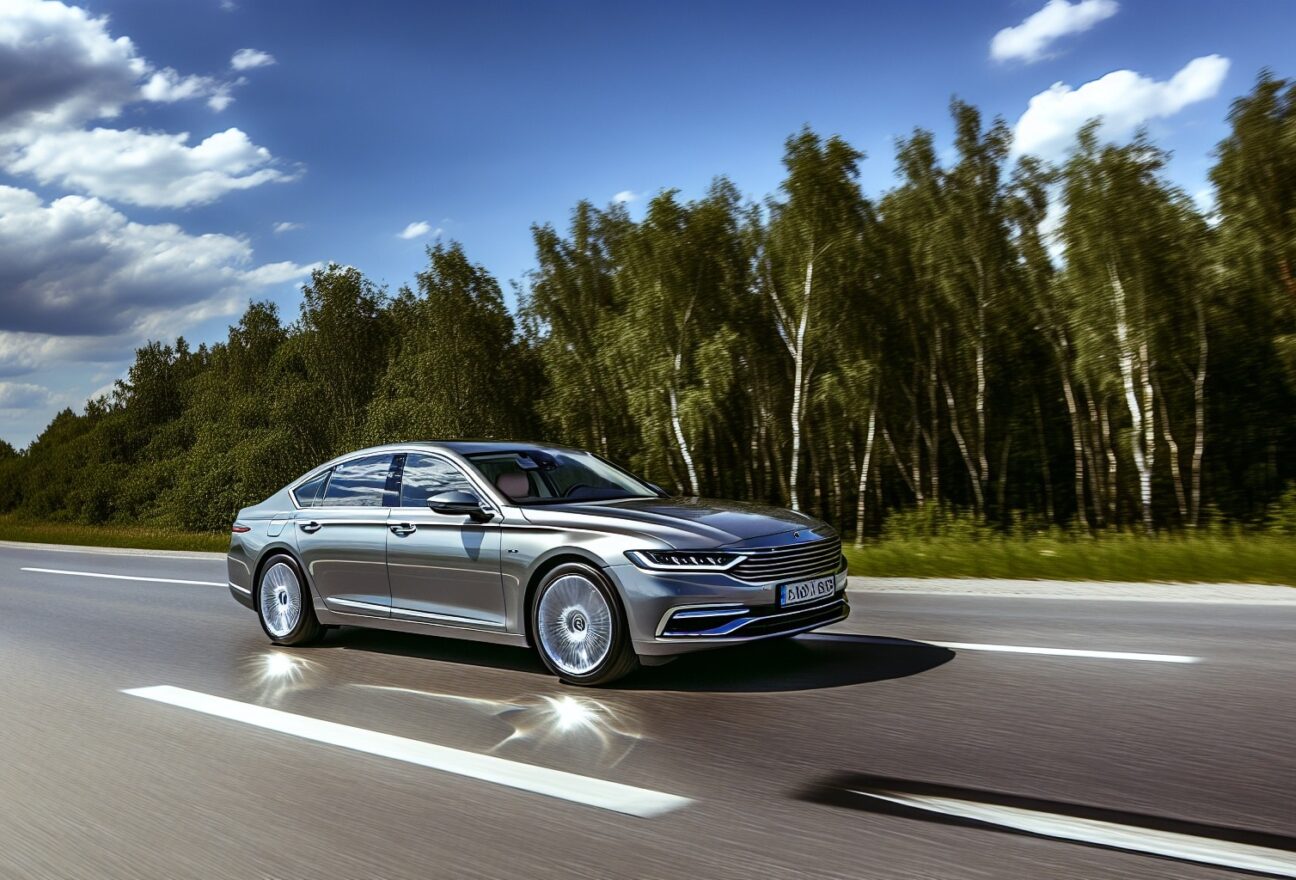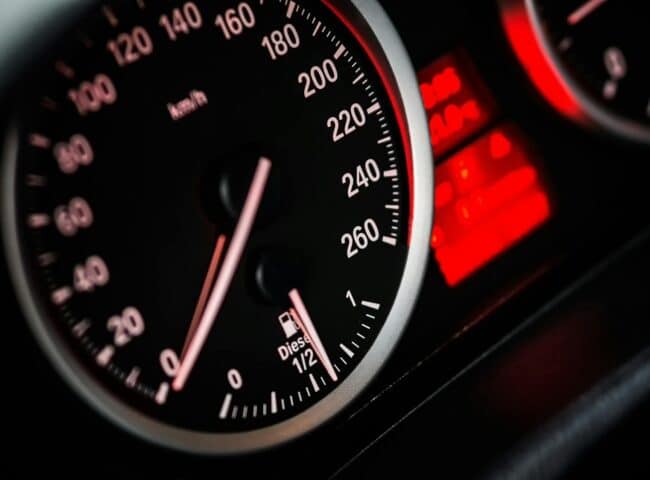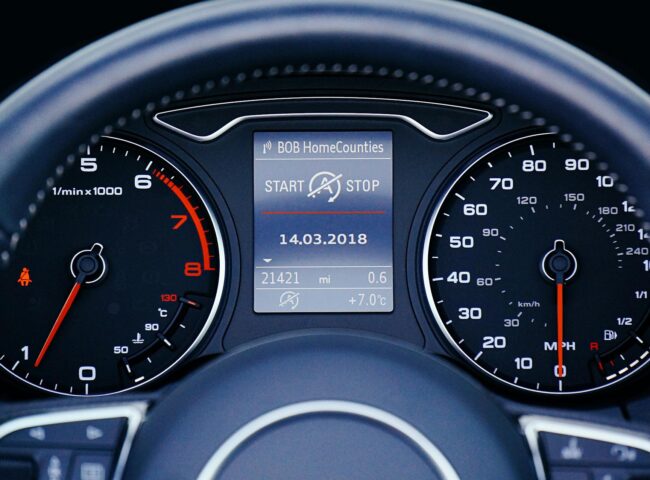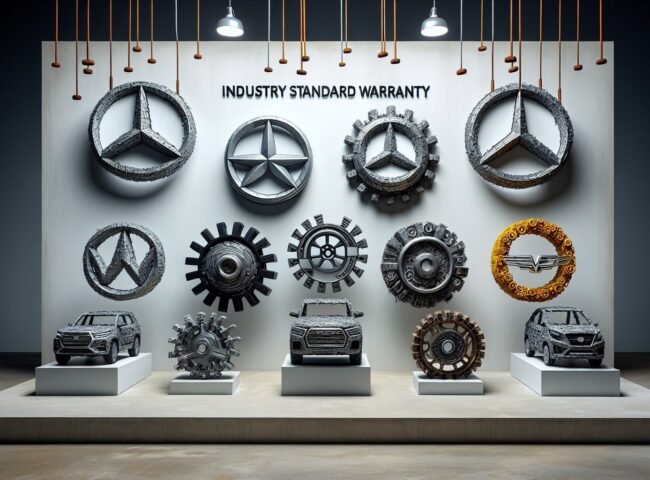When it comes to factors that affect auto warranty costs, several factors are at play. Vehicle make and model, age and mileage, coverage specifics, deductible, coverage duration, and the warranty provider shape these expenses. This article explores each of these elements to shed light on what dictates the amount you’ll pay for coverage, equipping you with the knowledge to discern the right warranty for your vehicle without overspending.
Key Takeaways
- The make and model of a vehicle are primary factors in determining extended car warranty costs, with luxury and high-end cars costing more due to expensive and complex repairs.
- An extended warranty will generally cost more for older vehicles and those with higher mileage due to an increased likelihood of repairs, reflecting higher risk for the warranty provider.
- Extended car warranty costs are influenced by coverage levels, with powertrain, bumper-to-bumper, and drivetrain options available that vary in comprehensiveness and cost, as well as by the provider (manufacturer or third-party) and the terms of the deductible, coverage length, and mileage cap.
The Role of Vehicle Make and Model in Auto Warranty Costs

The make and model of your vehicle play a significant role in determining the cost of an extended car warranty. It’s no surprise that luxury and high-end vehicles come with higher warranty costs. After all, their repair needs are often more expensive and complex.
In contrast, more common and affordable car models generally have lower extended warranty costs. This is because their parts are more readily available and cheaper to replace, which reduces the overall cost of potential repairs. Hence, the type of car you drive has a substantial effect on your extended car warranty cost.
Vehicle Age and Mileage Impact on Warranty Costs

The age and mileage of your car are other significant factors in your extended warranty expense. Older vehicles and those with high mileage tend to incur higher warranty costs. This is because as vehicles age and accumulate more miles, they are more likely to require repairs, which increases the risk for the warranty provider.
For example, a car with over 100,000 miles may have monthly warranty expenses between $120 and $230. This reflects the increased risk of breakdowns and repairs associated with high mileage cars. However, if a manufacturer’s warranty is still active on a newer vehicle, it may result in lower extended warranty costs.
Coverage Levels and Their Influence on Cost

Coverage levels, such as powertrain, bumper-to-bumper, and drivetrain, play a pivotal role in determining the cost of the extended warranty. Different levels cater to different vehicle needs and conditions, and each has its unique impact on the overall cost.
A deeper examination of these coverage levels will clarify their effect on warranty prices.
Powertrain Coverage
Powertrain coverage serves as a vital component of an extended car warranty. It covers the components that are most essential for your vehicle’s propulsion, including the engine, transmission, and drivetrain.
This coverage level provides basic protection for your vehicle. So, if you’re looking for a warranty that covers just the bare essentials, a powertrain warranty could be a cost-effective choice. But remember, it doesn’t cover everything. For a more comprehensive coverage, you might want to consider bumper-to-bumper or drivetrain coverage.
Bumper-to-Bumper Coverage
Bumper-to-bumper warranty, as the name suggests, offers comprehensive coverage for most parts and systems of your vehicle. It’s similar to the original warranty that comes with a new car, covering all parts and systems with certain exclusions.
Take note, bumper-to-bumper warranties typically exclude:
- wear items like brake pads, windshield wipers, or tires
- automotive glass
- routine maintenance services
- damage from corrosion, collisions, misuse, theft, and vandalism
So, while it’s a comprehensive coverage, it’s not all-encompassing.
Drivetrain Coverage
Drivetrain warranties typically cover essential components such as:
- Transmission
- Driveshafts
- Axle shafts
- Wheels
This coverage level, including trip interruption coverage, is designed to cater to common vehicle issues and potential breakdowns.
In addition to the parts mentioned, for manual transmission vehicles, the drivetrain warranty covers additional parts including the rear axle, final drive, flywheel, clutch, gearbox, propeller shaft, and differential. For automatic transmission vehicles, drivetrain coverage extends to the torque converter, transmission, propeller shaft, rear axle, and differential.
The Importance of Deductibles in Extended Warranty Costs

When considering the cost of an extended car warranty, it’s critical to understand the role of deductibles. A deductible refers to the amount you need to pay from your pocket before your warranty coverage takes effect for a repair. These can range from $0 to $100 or more, and they significantly impact the affordability of the warranty.
A higher deductible often results in lower upfront costs for the warranty but can lead to greater out-of-pocket expenses during repairs. On the other hand, a lower deductible can raise the overall cost of the warranty but reduce your costs when a repair is needed. Thus, it comes down to striking a balance between your present expenses and potential future costs.
Effects of Coverage Length and Mileage Cap on Warranty Prices
The length of coverage and mileage cap of your extended warranty also affect its cost. As expected, an extended warranty period results in a higher cost. This is because the longer the warranty is in effect, the more risk the provider takes on, which is reflected in the price.
Similarly, a higher mileage cap – the maximum number of miles a vehicle can have for the warranty to remain valid – also increases the cost. This is because a vehicle with more miles is more likely to need repairs. So, when choosing your coverage length and mileage cap, you’ll need to consider both your budget and your anticipated usage of the vehicle.
Provider Differences and Their Impact on Warranty Costs
When shopping for an extended car warranty, you’ll find a variety of extended auto warranty providers to choose from, and these can be broadly categorized into manufacturers and third-party providers. There are key differences between these two types of providers, and these differences can significantly impact warranty costs.
For instance, a manufacturer’s warranty is typically more expensive than those from third-party providers. However, they offer the advantage of having repairs done by factory-trained technicians using factory parts. On the other hand, third-party providers often have more affordable options and provide the flexibility to have repairs done at various authorized shops.
So, when comparing warranty costs, it’s not just about the price. It’s also about what you’re getting for your money – such as the quality of the repairs and the convenience of the service. Hence, these factors, along with your personal preferences, should be taken into account when selecting a warranty provider.
Making Extended Car Warranties More Affordable: Tips and Strategies

If extended warranty costs appear overwhelming, rest assured. There exist strategies to make them more budget-friendly. For instance, many providers offer monthly payment options, which can make the costs more manageable. Some even allow you to roll the cost of the warranty into your auto loan.
Another strategy is to negotiate the price and coverage of the warranty. Remember, extended warranties are optional, and their prices can be negotiated. By understanding your vehicle’s needs based on its age, make, model, and your driving habits, you can avoid unnecessary costs and tailor the warranty to your specific needs.
Evaluating the Value of Extended Car Warranties
Once you’ve understood the costs, it’s time to assess the worth of the extended warranty. This involves weighing the costs against the benefits it offers. An extended car warranty covers repair expenses for your vehicle within a specific time frame or before reaching a specific mileage limit.
You’ll also need to consider the reliability of your vehicle. A highly reliable car may require fewer repairs, which could reduce the need for extended coverage. Furthermore, it’s important to review the extended warranty contract for coverage details, exclusions, and duration. Pay special attention to any overlap with the manufacturer’s warranty, as this could affect the overall value of the extended warranty.
Top Extended Car Warranty Providers: Recommendations and Comparisons
So, who are the top players in the extended car warranty market? The leading extended warranty company options in the extended car warranty companies list include:
- Endurance
- CarShield
- Concord Auto Protect
- Carchex
- Olive
- Autopom!
These companies are highly recommended. They are known for their comprehensive coverage options, transparency in pricing, and added benefits like roadside assistance and rental car reimbursement.
Endurance is particularly recognized for its comprehensive extended warranty coverage options, excellent customer service, and plans for vehicles up to 15 years old or with 200,000 miles. However, it’s always a good idea to compare costs and coverage of different extended auto warranties to find the most affordable option with the best value for your new or used vehicle. In doing so, researching the reputation of extended auto warranty providers and examining customer reviews is of utmost importance before finalizing your decision.
Summary
In conclusion, several factors influence the cost of an extended car warranty, including the make and model of the vehicle, its age and mileage, the level of coverage, deductibles, and the provider. To make an informed decision, it’s crucial to understand these factors, evaluate the value of the warranty, and compare different providers. Armed with this knowledge, you are now ready to find the best extended car warranty that fits your budget and meets your vehicle’s needs.
Frequently Asked Questions
What is an extended car warranty?
An extended car warranty is a service contract that covers repair expenses for your vehicle within a specific time frame or before reaching a specific mileage limit.
How does the make and model of my vehicle affect the cost of an extended warranty?
The make and model of your vehicle can affect the cost of an extended warranty, with luxury and high-end vehicles typically incurring higher costs due to their complex repair needs.
How does the age and mileage of my vehicle affect the cost of an extended warranty?
The age and mileage of your vehicle can significantly impact the cost of an extended warranty, with older vehicles and those with high mileage generally resulting in higher warranty costs due to the increased chance of repairs.
What are the different types of coverage levels in an extended car warranty?
Extended car warranties offer coverage levels such as bumper-to-bumper, powertrain, and drivetrain, each designed to address different vehicle requirements and conditions. Choose the one that best suits your needs.
How can I make my extended car warranty more affordable?
You can make your extended car warranty more affordable by exploring monthly payment options, rolling the cost into your auto loan, and negotiating both the price and coverage to find the best deal.





